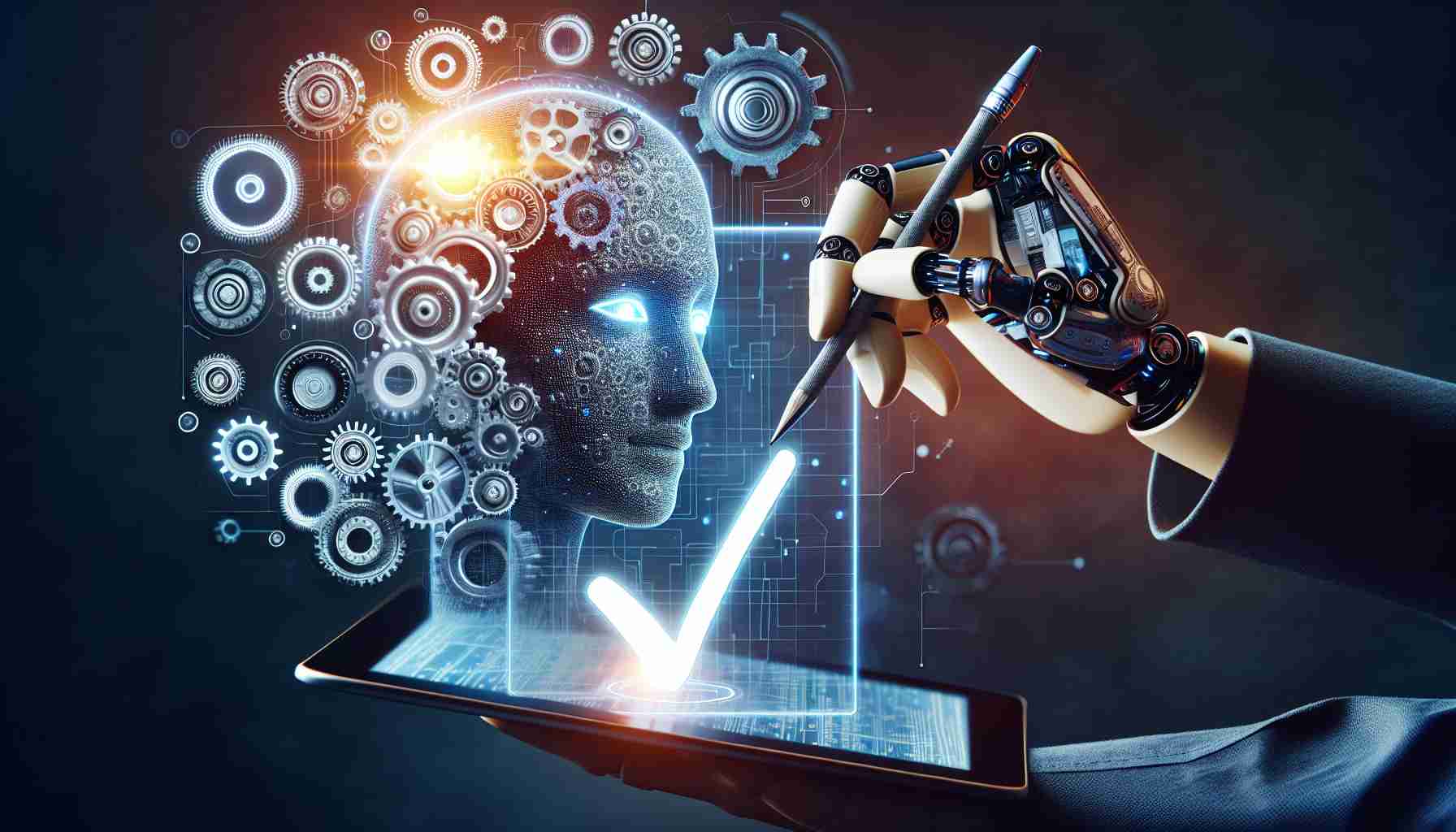The use of artificial intelligence (AI) by students to complete assignments has been a growing concern in academic circles. The prevalence of AI as a tool for cheating was highlighted in a survey revealing a significant number of college students have utilized AI for tasks ranging from homework to essay writing and take-home tests.
Chase Golden, a cybersecurity expert at the Alabama School of Cyber Technology and Engineering, acknowledges the issue but cautions against hyperbole. He suggests that reliance on AI may deprive students of essential educational experiences and hinder the development of problem-solving skills required in the workforce.
Golden also remarks on the strategy of the school to embrace the use of AI ethically. A new course on machine learning has been integrated into the curriculum to promote the understanding of technology. This approach is geared towards fostering critical thinking, as students can evaluate AI-generated work against their own.
Similarly, Dr. Michelle Greene from the University of Alabama in Huntsville emphasizes the long-term disadvantages of academic shortcuts via AI applications. The university has crafted policies to combat AI-related cheating, equipping faculty with strategies to address such challenges. Penalties for students caught using AI unethically echo those for traditional forms of academic dishonesty.
Educators are therefore faced with the task of harnessing AI’s potential while mitigating its threats to academic integrity. As AI technologies continue to evolve, educational institutions must adapt to ensure their use aligns with educational values and objectives.
The advent and increasing sophistication of artificial intelligence (AI) is transforming numerous industries, including the education sector. Students leveraging AI to assist with or complete assignments pose a significant challenge to the integrity of academic programs and highlight a pressing issue within the educational system. The technology’s misuse for cheating mirrors a broader conversation about the role of AI in society and its potential both to enhance and disrupt traditional workflows.
Market forecasts for AI in education have been optimistic, projecting substantial growth due to the increased demand for personalized learning, the need for automating administrative tasks, and the rising interest in intelligent tutoring systems. By infusing AI into the educational process, schools seek to deliver tailor-made experiences to students, enhance engagement, and improve learning outcomes. MarketsandMarkets and Grand View Research are two firms that provide extensive market analysis and forecasts for AI in the education sector.
However, the rise of AI in academic environments is not without issues. One primary concern is the potential for academic dishonesty, as students might use AI systems to complete assignments, thus subverting the learning process. This creates a horizon of ethical considerations, where academic institutions must define clear policies and establish honor codes that address the appropriate use of AI by students.
Another concern involves the digital divide and equal access to AI tools. Students with limited access to cutting-edge AI applications may find themselves at a disadvantage compared to those who can afford the technology, which may perpetuate inequality within educational outcomes.
Moreover, there is a burgeoning need for the workforce to adapt to an increasingly AI-driven labor market. As AI continues to advance and potentially replace certain job functions, students must be equipped with a robust set of skills, including the ability to work alongside and harness AI, rather than simply using it as a shortcut.
In response to these challenges, higher education institutions are not only crafting policies to prevent unethical use of AI but also redesigning curricula. This includes integrating AI into the learning process in a manner that promotes an understanding of the technology, fosters critical thinking, and prepares students for AI-augmented workplaces. Courses on machine learning, robotics, and computational thinking are becoming more commonplace across universities globally.
The integration of these technologies in education certainly raises important questions about future pedagogical approaches. Educators and policymakers are continually exploring methods to ensure that AI augments rather than undermines educational goals, with the overarching objective of preparing students for an AI-driven future that prioritizes ethical considerations alongside innovation.
As AI technology becomes even more integrated into the fabric of education, schools like the Alabama School of Cyber Technology and Engineering and the University of Alabama in Huntsville are examples of institutions taking proactive steps to shape how AI is incorporated into educational practices, ensuring students understand both the potential and limitations of these powerful tools.

